Counseling & Therapy Posts on Crowch
Every April, the sporting world pauses as the best golfers on the planet gather in Georgia at the legendary Augusta National Golf Club. From April 10 to 13, 2025, the next edition of The Masters will take place — a tournament that has become a true symbol of golf and one of the most recognizable sporting events in the world.
A Unique Atmosphere
Unlike many other tournaments, The Masters is always held on the same course. This continuity creates a sense of tradition and familiarity: players and fans return to a landscape where every hole carries the weight of past victories, defeats, and unforgettable drama.

Traditions That Live On
- The Green Jacket — the iconic prize for the champion, which remains at Augusta and can only be worn by a Masters winner.
- The Champions Dinner — an exclusive gathering where the reigning champion hosts past winners with a menu reflecting their heritage and culture.
- The Par 3 Contest — a friendly warm-up event where players often bring their children and families onto the course, turning competition into celebration.

These traditions elevate The Masters beyond a tournament — they make it feel like a ritual, steeped in history and respect.
A Test for the Best
The Masters is not only about skill but also about mental resilience. Its lightning-fast greens, unpredictable holes, and immense pressure from the galleries turn Augusta into one of the greatest challenges in sport. To triumph here is to etch one’s name forever into the pantheon of golfing legends.
Magic for the Fans
For millions of viewers around the world, The Masters is more than just golf. It is a celebration of spring, where the beauty of blooming azaleas, the intensity of competition, and the spirit of tradition come together on one stage.
✨ The Masters 2025 is the magic of Augusta, where sport becomes art, and every shot has the chance to enter history.
October is the time when society raises one of the most difficult and painful issues: domestic violence. This month was created to speak openly about what has too often been hidden in silence. It exists to remind us that violence is not a “private family matter,” but a widespread social issue that touches millions of lives across all backgrounds, cultures, and communities.
Domestic violence does not always appear as physical harm. It can be psychological abuse, verbal insults, restrictions on freedom, financial control, or constant humiliation. Each of these forms causes deep and lasting wounds. It shatters trust, destroys self-esteem, and can trap survivors in cycles of fear and dependency. Too many people remain silent — out of fear of retaliation, shame, or the belief that no one will listen. But the truth is simple and powerful: violence is never normal, and silence should never be the answer.
✨ Why does this month matter so much?
- It breaks stereotypes. Domestic violence can happen to anyone, regardless of gender, age, race, or income level.
- It defends human rights. Every person deserves safety, dignity, and the right to live free from fear.
- It highlights support systems. Hotlines, shelters, crisis centers, counselors, and community organizations are there to help — and survivors must know they are not alone.
- It shows the strength of community. When we raise our voices together, we amplify the message that violence has no place in our homes or societies.
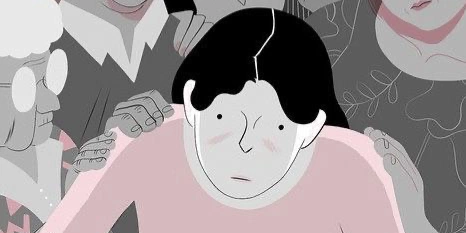
Domestic Violence Awareness Month is not just another awareness campaign. It is a movement for change. It calls on us to notice, to care, and to act. It urges us not to look away when we know someone is suffering. It gives us the chance to support initiatives that protect survivors and to stand behind those who are rebuilding their lives. And it reminds us of our shared responsibility to raise future generations in a culture of equality, empathy, and respect.
Silence is part of the problem. When survivors are left unsupported, violence continues unchecked. But when society speaks openly, challenges the stigma, and provides safe paths forward, real change becomes possible. Every voice raised, every conversation started, and every act of support matters.

October in purple is more than a symbol. It is a declaration of solidarity. It is a reminder that love is stronger than fear, and that care is stronger than cruelty. It represents our hope for a future where homes are safe, families are free from violence, and every person can live with dignity.
Together, we can build that future — one step, one voice, and one act of compassion at a time.
Every year on October 10th, the world marks World Mental Health Day, a time to recognize the importance of mental well-being and the need for open dialogue around it. Since its inception in 1992 by the World Federation for Mental Health, this day has grown into a global movement, encouraging people to share their experiences, challenge stigma, and advocate for better care.
The Power of Personal Stories
Mental health struggles can often feel isolating, but when people share their journeys, they remind others that they are not alone. A young student talking about their battle with anxiety, a parent describing the challenges of postpartum depression, or a professional opening up about burnout — each story chips away at the walls of silence. These voices create a ripple effect, giving courage to those who are still afraid to speak.
Understanding the Everyday Impact
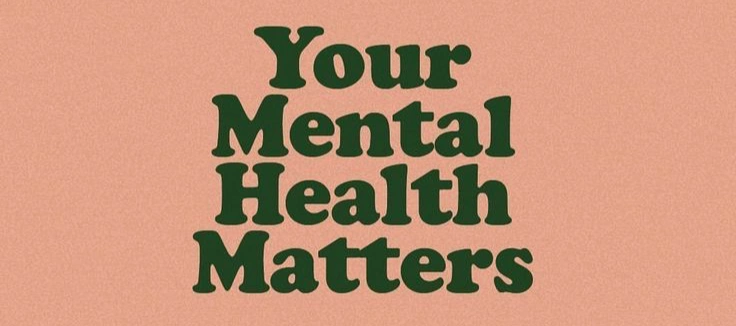
Mental health is not just about diagnosed conditions; it’s about how we handle stress, adapt to change, and relate to others. A bad week at work, grief after loss, or the stress of uncertainty — these experiences affect everyone, and acknowledging them is the first step toward healing.
Breaking Stigma through Awareness
Stigma thrives in silence. For too long, mental health issues have been whispered about or ignored altogether. World Mental Health Day transforms that silence into conversation — in classrooms, workplaces, and communities. Education campaigns, public talks, and social media initiatives on this day aim to replace judgment with understanding.
Practical Ways to Support Mental Health
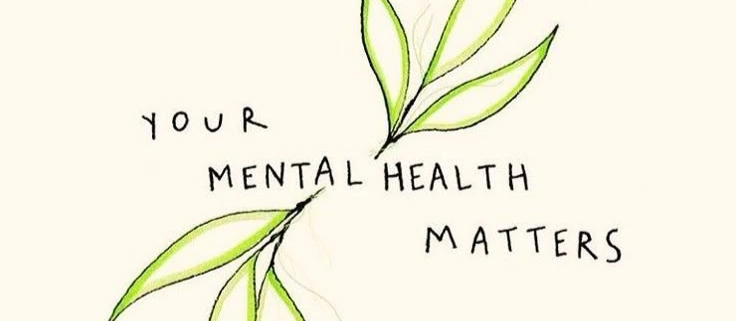
- For Yourself: Set boundaries, practice self-compassion, and prioritize rest.
- For Others: Be a patient listener, avoid dismissive comments, and check in regularly.
- In the Community: Support local mental health initiatives, volunteer, or advocate for accessible services.
The Role of Global Collaboration
Access to mental health care remains unequal across the world. While some have therapists, hotlines, and support networks, others lack even the most basic services. Governments, NGOs, and private sectors must work together to expand access and integrate mental health into public health policies.
The Heart of the Day
At its core, World Mental Health Day is about humanity — the shared understanding that everyone’s mind matters. It’s a reminder to look inward, care for ourselves, and extend empathy outward to others.
On October 10th, let’s move beyond awareness toward action. By speaking openly, supporting each other, and demanding better care, we can build a future where mental health is valued, protected, and nurtured for all.
Every October 10th, people in over 150 countries unite to observe World Mental Health Day, a moment to acknowledge the importance of psychological well-being and to take collective action against the stigma that surrounds it. This day, initiated in 1992 by the World Federation for Mental Health, is not just a date on the calendar — it’s a reminder that mental health is the foundation for a fulfilling life.
More Than the Absence of Illness
Mental health is not only about the absence of disorders like depression or anxiety; it’s also about having the emotional resilience to cope with stress, the ability to build strong relationships, and the capacity to contribute to one’s community. Just as we take care of our bodies, we must also prioritize our minds.
The Growing Global Concern
According to the World Health Organization, one in eight people worldwide lives with a mental health condition. The COVID-19 pandemic, economic instability, and social isolation have intensified this crisis, making it even more urgent to invest in mental health care and prevention strategies.

The Power of Awareness and Conversation
One of the greatest barriers to mental health support is silence. Stigma discourages people from seeking help, fearing judgment or misunderstanding. World Mental Health Day opens the door to conversations — in schools, workplaces, and homes — where people can share experiences and encourage one another.
Practical Steps for Everyone
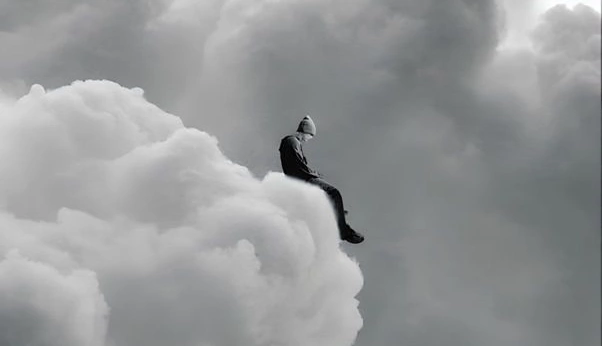
- Check In with Yourself: Practice mindfulness, keep a journal, or take short breaks to recharge during the day.
- Reach Out to Others: A small gesture of kindness or a listening ear can make a difference.
- Seek Help Early: Whether through counseling, therapy, or support groups, early intervention can prevent more serious challenges.
- Educate Yourself: Learn about mental health to better understand and support those around you.
A Shared Responsibility
Governments, organizations, and communities all have a role to play — from creating accessible mental health services to fostering inclusive environments where everyone feels safe to speak openly. Investing in mental health is not just a humanitarian priority; it’s an economic one, as healthier individuals contribute more positively to society.
The Message of October 10th
World Mental Health Day is an invitation to reflect, connect, and take action. By showing compassion to ourselves and to others, we can help build a world where mental well-being is a shared value, not an afterthought.
Sometimes you go through life and everything seems… normal. Mornings, work, meetings, tasks, dinner, the news, sleep. Day after day. But inside — it feels like nothing is really happening. Everything runs in the background. No taste. No presence. No real “now.” Just the endless “must.”
It’s hard to explain this state. You’re not exactly depressed. Nothing terrible has happened. But everything feels muted. You react, but don’t experience. You speak, but don’t engage. You function, but you don’t feel.This is stress too — not the sharp kind, but the kind that quietly disconnects you from yourself.
We often think anti-stress means active recovery: exercise, breathwork, strict routines, meditation. And yes — that can help. But there’s a state where what you truly need is a pause. Not another action. But space. Silence.A moment without “should.”Without “do better.”Without “just push through.”
When you’re overloaded, your body protects you — by numbing your emotional depth. It’s not laziness. It’s not apathy. It’s survival.
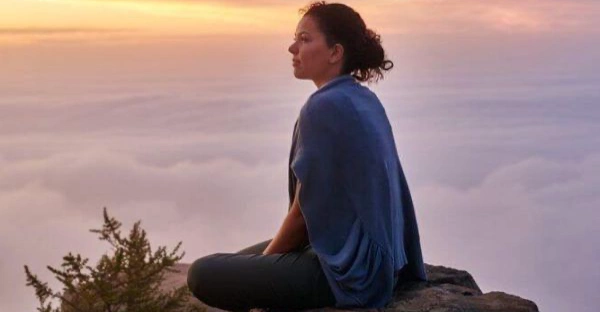
And in moments like that, don’t ask yourself for motivation, inspiration, or energy. Because real anti-stress isn’t about pushing forward. It’s about giving yourself time and quiet, so you can feel again.
What helps you come back?
– Doing ordinary things slowly: washing hands, eating, getting dressed– Listening to real-world sounds — not music, not noise– Slowing your breath, even just for a minute– Looking out the window without rushing– Turning off stimulation: background videos, endless scrolling, constant noise– Writing — not a gratitude list, but what’s real, raw, now– Letting yourself want nothing at all
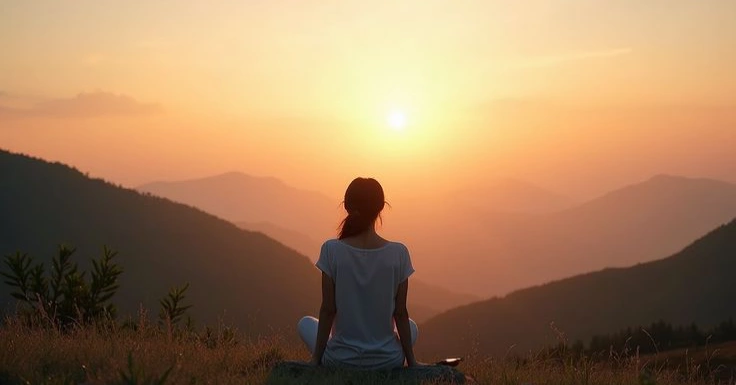
This isn’t a quick fix. It’s not magic. It’s honesty.A quiet recognition: “I’m not tired of life — I’m tired of how long it’s been since I felt like I was really here.”
Anti-stress isn’t just about regaining energy. It’s about regaining sensitivity. Because that’s what makes us feel alive. That’s the sign we’re finally back — in this moment, in ourselves, not drifting between tasks.
And sometimes, to feel again — you don’t need effort. You need stillness.No goal.No agenda.Just space to finally hear what’s happening inside.
Sometimes stress doesn’t feel like an explosion. It feels like background noise that never stops. On the surface, you’re doing fine — tasks get done, meetings happen, life goes on — but inside, you’re tense. Like you’re constantly clenching your fists, not with your hands, but with your nervous system. It’s hard to explain, but many know the feeling: anxiety without a reason, tiredness that sleep doesn’t fix, irritation over nothing, the deep urge to disconnect from everything — even for just an hour.
We often see stress as an enemy to fight off. But in truth, stress is a natural response to overload. It’s not weakness — it’s a signal: “This is too much. I’m not recovering fast enough.” If we ignore that signal, the body starts to “scream” — through pain, insomnia, apathy, or burnout.
The goal is not to be made of steel. The goal is to notice your limits. Where is it becoming too much? Where are you acting from tension, not from interest? Where are you saying “yes” when every part of you wants to say “no”? The ability to hear yourself in time isn’t a luxury — it’s a skill that protects your energy, health, and emotional balance.
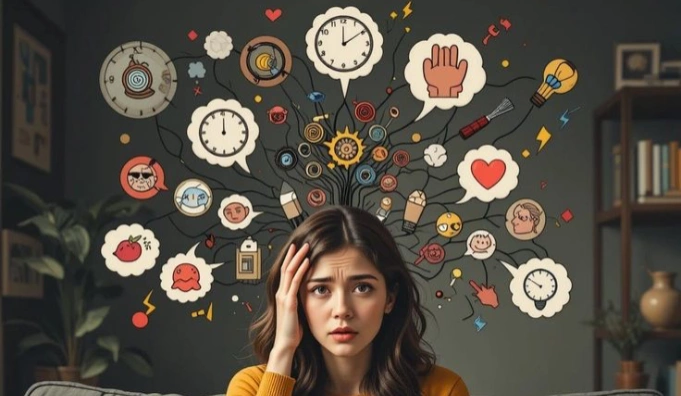
Sometimes all it takes is something small: stepping outside for a phone-free walk. Setting a 10-minute timer for silence. Writing down everything that’s buzzing in your head. Saying to someone close: “I need space — I’m overloaded.” It won’t solve everything, but it’s a pause that gives your body a chance to breathe.
And above all, in stressful times, be gentle with yourself. Stop demanding productivity when you’re running on empty. Stop comparing yourself to others who seem to have it “together.” Stop expecting yourself to be strong every second. Because strength isn’t always movement. Sometimes, strength is choosing to stop. To say, “I’m tired — and that’s okay.”

We can’t remove stress from life completely. But we can change how we respond to it. Not through resistance, but through awareness. Not by ignoring it, but by meeting it with care. And then, stress stops being the enemy — it becomes a turning point. A reminder: you are alive, you are feeling, and even when it’s too loud inside — you still have the power to choose yourself.
In today’s fast-paced world, stress has become a nearly constant presence. We're juggling deadlines, endless notifications, pressure to perform, the fear of missing out, and the need to always "keep up." We've been conditioned to see stress as something to eliminate — as a threat. But what if stress isn’t the enemy? What if it’s actually a message?
Stress, at its core, is not bad. It’s a natural response to challenge, change, and uncertainty. In small doses, it sharpens our focus, boosts motivation, and helps us act quickly in tough situations. Some of our best decisions, ideas, and creative sparks come under healthy pressure. The real danger begins when stress becomes chronic — when we stay in a state of tension for days, weeks, or even months without rest or recovery.
Chronic stress drains the nervous system, clouds the mind, and weakens the immune system. It often starts subtly: we lose patience faster, struggle to concentrate, wake up tired, get headaches more often. Then comes emotional burnout — when we feel disconnected, numb, or overwhelmed for no obvious reason. These aren't just random bad days. They’re signs that something inside us needs attention.
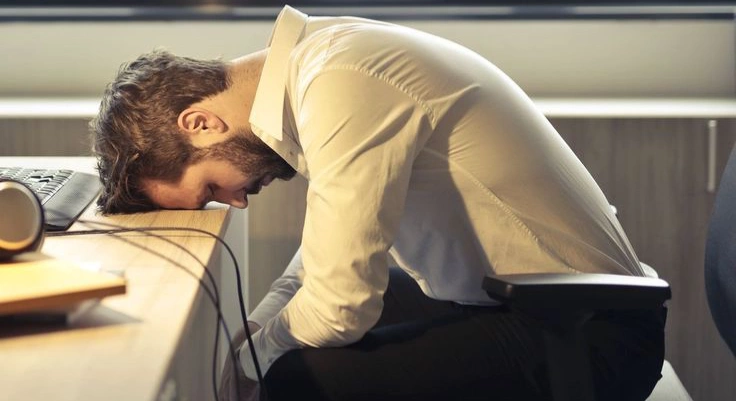
The goal isn't to eliminate stress entirely. That’s unrealistic. The key is to build awareness and resilience — to notice stress signals early and respond to them kindly and intelligently. Start by asking simple questions:“What is my body trying to tell me?”“Am I pushing too hard?”“What’s one small thing I can do right now to support myself?”
Even tiny habits can help shift your state:– Slow, deep breathing (exhale longer than you inhale)– Taking a short walk without your phone– Drinking water mindfully– Doing a brain “reset” by journaling for 5 minutes– Saying “no” when you need rest, not more tasks
One of the biggest myths around stress is that “strong people don’t feel it.” In truth, real strength is emotional flexibility. The ability to slow down when needed. To admit when you’re tired. To ask for help. To say, “This is too much for me right now” — and not feel shame for it.
You don’t have to be calm and productive all the time. You don’t need to “fix” yourself. You need to be with yourself — especially in the moments you feel overwhelmed.
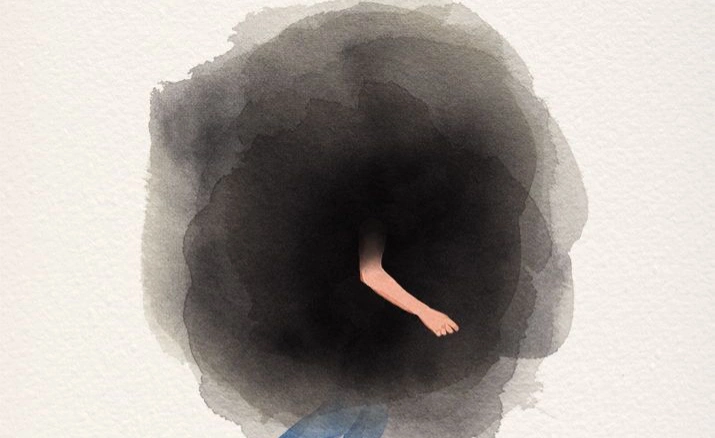
Stress is not a flaw. It’s your nervous system asking for balance. And when you start listening to it — not suppressing or fearing it — you begin to rebuild something incredibly valuable: your connection with yourself.
So today, maybe don’t try to fight stress. Try to pause. Try to breathe. Try to listen. Because behind that tension, there’s often a very human message:“You’re doing your best. It’s okay to rest.”
Health isn’t a destination — it’s a journey. One shaped by the choices we make every single day: what we eat, how we move, how we sleep, how we respond to stress, and how well we listen to what our bodies are telling us.
There’s no single formula for feeling good. No universal diet, no perfect routine. Because we are constantly evolving — mentally, physically, emotionally. And so is our idea of wellness.
On this path, supplements can be small, quiet allies. Not miracle cures, not shortcuts, but gentle companions that offer support when life gets overwhelming, seasons shift, or energy dips. They are tools — not solutions — and when used mindfully, they can make a meaningful difference.
Vitamins, minerals, adaptogens, omega-3s, probiotics — they’re not about "fixing" something broken. They're about creating more balance in a system that might be a little out of rhythm. For example, vitamin D in winter can help offset the lack of sunlight. Magnesium can ease sleep troubles and muscle tension. Ashwagandha may support your nervous system when stress runs high. And a good-quality multivitamin can fill in small gaps in your nutrition when your diet isn’t perfect — because no one’s is.
But here’s the important part: supplements should never replace the foundation of wellness. They are additions, not substitutes. You can’t out-supplement poor sleep, constant stress, or a lack of real food. The most powerful health practices are still the simplest: drinking water, moving your body, connecting with people, spending time in nature, and getting quality rest.

The key is to avoid turning supplements into another automatic routine — just another handful of capsules you take without thinking. Pause and ask yourself:– Why am I taking this?– How do I feel right now?– What does my body actually need today?
The answer might not always be more. Sometimes, it's less. Sometimes, it's just listening.
We are not machines. We ebb and flow. We go through stress, healing, growth, and transition. And our approach to health should reflect that — it should be fluid, responsive, and alive.

Supplements won't replace mindfulness. But they can become a conscious part of it — a way to show up for yourself with intention, care, and curiosity.
In the end, the most powerful supplement is not what you swallow — it’s the awareness with which you live.
Modern humans know more than ever, can do more than ever — and yet, more and more people feel lost. We live in a time where the pace of change exceeds our capacity to adapt, where boundaries blur, and stability feels conditional, temporary, or illusory.
Life has become unpredictable. Economic turbulence shakes our sense of financial security. Social and political polarization makes even everyday conversations feel fragile. Climate anxiety casts a shadow over the future. And the constant stream of digital inputs leaves us mentally fragmented, overstimulated, and drained. These aren’t isolated stressors — they intersect and compound each other, wearing away at our sense of inner ground.
We’re spending more time reacting and less time reflecting. Our calendars are full, our minds are cluttered, and our attention is scattered. We're expected to stay updated, stay productive, stay connected — but few of us are taught how to stay centered. Psychologists now talk openly about the loss of internal resilience — that inner steadiness that helps us absorb challenges without falling apart.
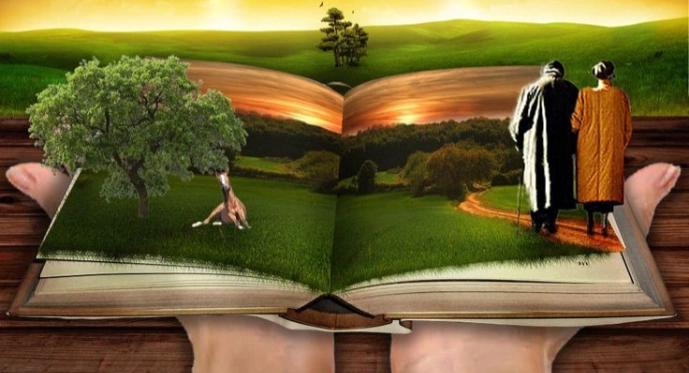
And so many of us are quietly asking: Where is my anchor? How do I find clarity when the world keeps shifting? How can I protect my energy, my focus, and my peace in a time that demands constant motion?
The answer isn’t in controlling everything. That’s not possible. The answer is in refocusing:
— Not in trying to predict the future, but in learning to meet it with presence and perspective.— Not in consuming more information, but in seeking deeper understanding.— Not in resisting change, but in cultivating the inner capacity to move through it with intention.
True resilience is not about building walls — it's about building depth. It’s about creating enough internal space to respond wisely instead of reacting reflexively. It’s about knowing when to pause, when to say no, and when to simply be — without productivity or performance.
So what does this look like in practice?
- Creating quiet routines that nourish your mind instead of draining it.
- Spending time in activities that bring clarity, not just stimulation — like reading, walking, journaling.
- Redefining success as alignment with your values, not with external metrics.
- Allowing space for imperfection, uncertainty, and rest.

In a culture that rewards speed and visibility, resilience is an act of subtle rebellion. It says: I do not need to keep up with everything to be whole. I do not need to be constantly available to be valuable. I do not need to perform calm — I can practice it.
Resilience in the 21st century isn’t something you have — it’s something you build. And it begins not with changing the world, but with changing how you move through it. Your anchor was never meant to be out there. It’s been within you all along — waiting to be remembered.
We live in an age where attention is the new currency. Newsfeeds refresh every second. Messengers constantly ping. Push notifications flash across our screens — demanding that we look, swipe, click, reply. In the middle of all this noise, we’re still expected to work, study, socialize, stay informed, be healthy, and somehow remain sane. This isn’t just information overload — it’s informational noise, a kind of digital smog that clouds our ability to think clearly, focus deeply, or feel truly present.
The human brain, brilliant as it is, did not evolve to handle this kind of cognitive environment. We weren’t designed to process thousands of micro-updates per day, each one calling for our attention, often with urgency that’s manufactured. We’re pulled from task to task, scrolling through bite-sized content, switching between tabs, apps, emails, messages — rarely staying with one thought long enough to understand it fully, let alone reflect on it.
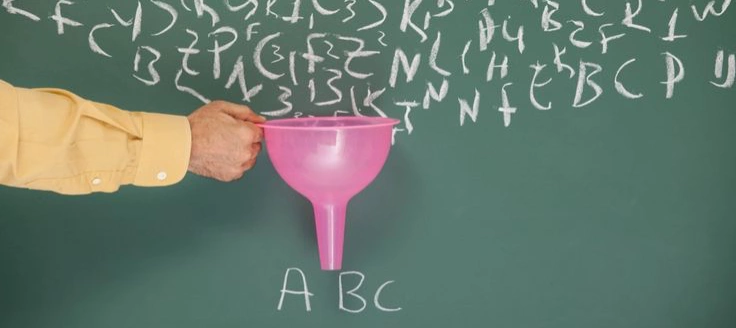
Over time, this leads to fragmented attention. Our ability to concentrate weakens. Tasks take longer. Mental fatigue becomes chronic. Even in moments of silence, our minds race. Many of us feel the need to check our phones during conversations, refresh our feeds when bored for two minutes, or scroll before sleep — not because we need to, but because we’ve become conditioned to.
And this isn’t just about productivity. It’s about the quality of our inner life. The loss of focus means a loss of depth — in learning, in relationships, in creativity. We struggle to be fully present with people, to engage deeply with ideas, or even to enjoy quiet moments alone. The space where imagination used to live is now often filled with noise we didn’t ask for.
Why is this a serious problem? Because without sustained attention, we can’t do the things that matter most. We can't build meaningful work. We can't grow relationships. We can't make intentional choices. We end up living reactively — responding to inputs instead of acting from purpose. Instead of following our own goals, we drift through a never-ending stream of other people’s agendas, wrapped in algorithms designed to keep us distracted.
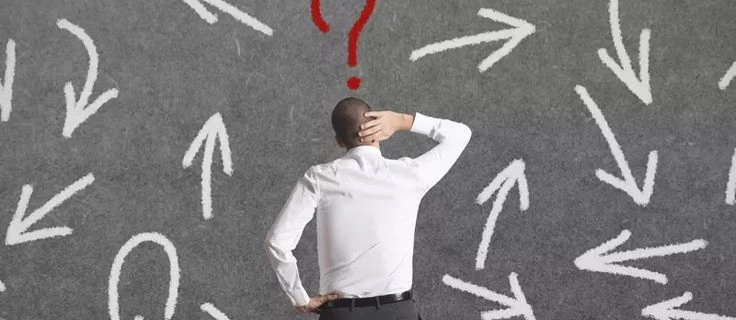
But there is a way out. It’s not about rejecting technology — it’s about using it with clarity.
What can we do?
- Minimize the noise: Turn off non-essential notifications. Unsubscribe from low-value content. Curate your feed the same way you would curate what goes into your body. Choose carefully.
- Regain focus: Work in intentional silence. Use techniques like Pomodoro to reclaim blocks of deep work. Protect screen-free time — not just for rest, but for reflection.
- Rebuild inner stillness: Meditate. Walk without your phone. Write a journal, not a tweet. Do nothing for 10 minutes and don’t feel guilty about it. Stillness is not wasted time — it’s where attention regenerates.
- Treat attention like energy: It’s limited, precious, and easily hijacked. Where you place your attention shapes who you become.
In a world that profits from your distraction, real freedom begins when you reclaim your focus. It’s not easy — but it is possible. And the more of us who do it, the more we shift the culture from noise toward meaning.